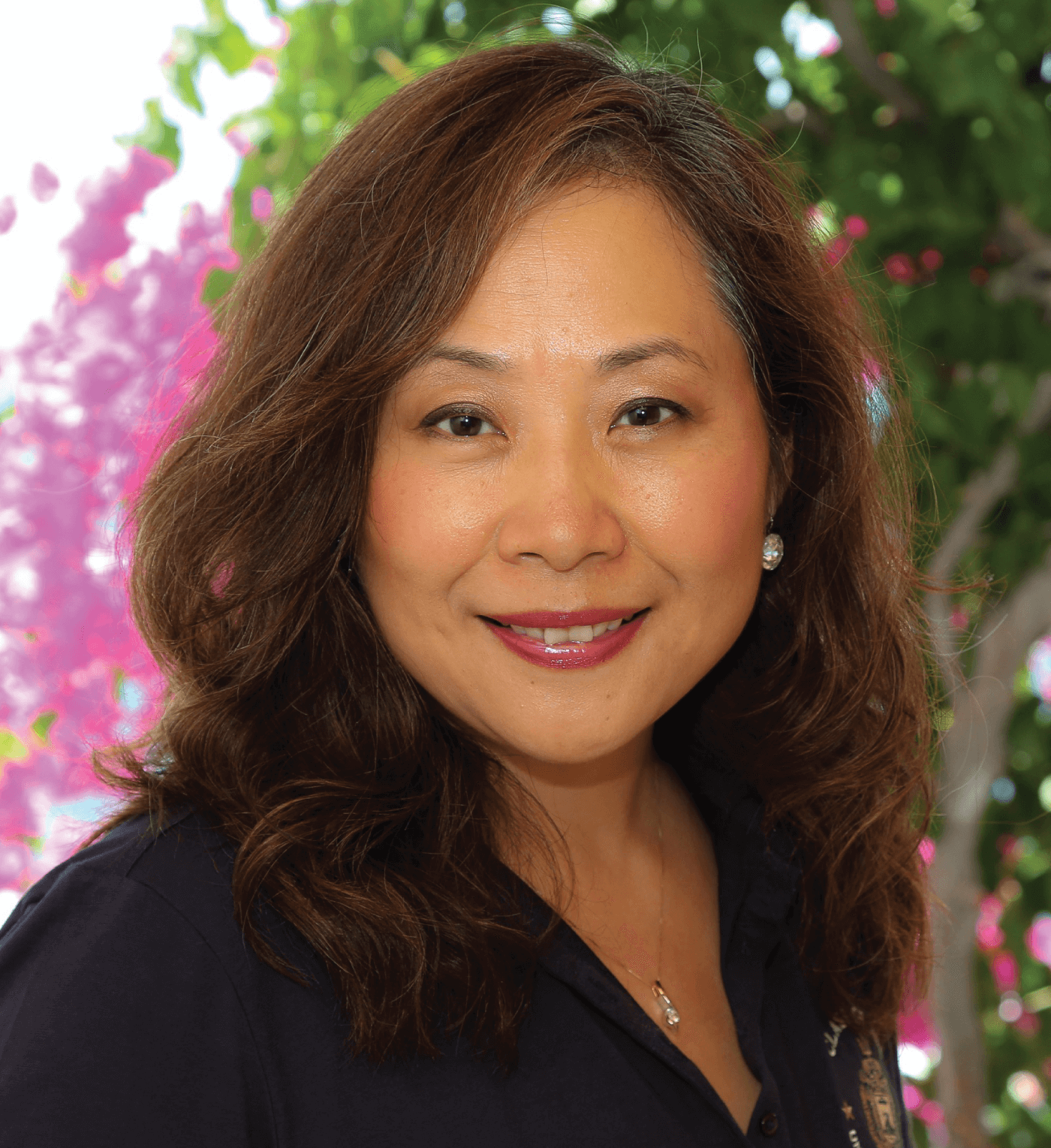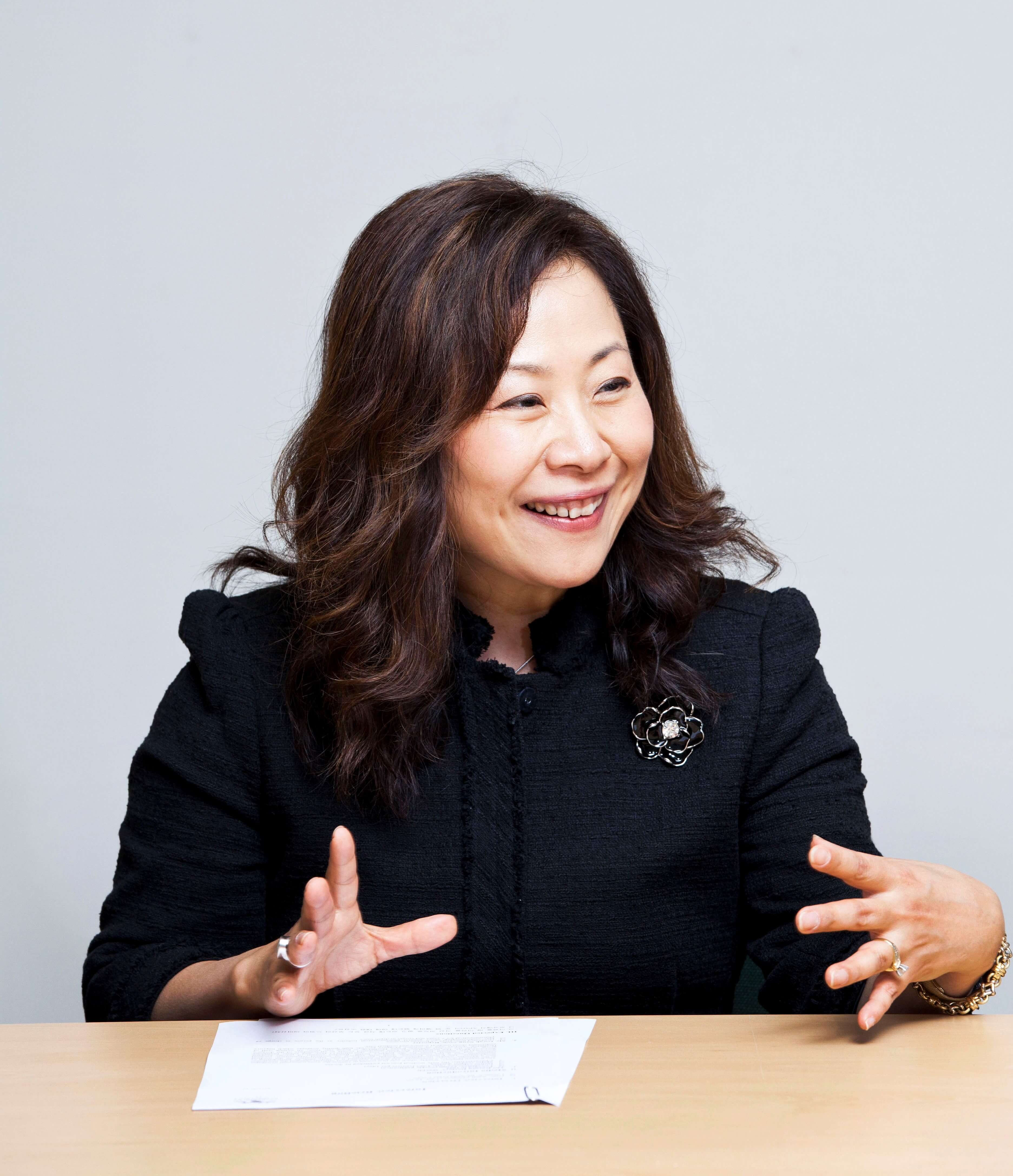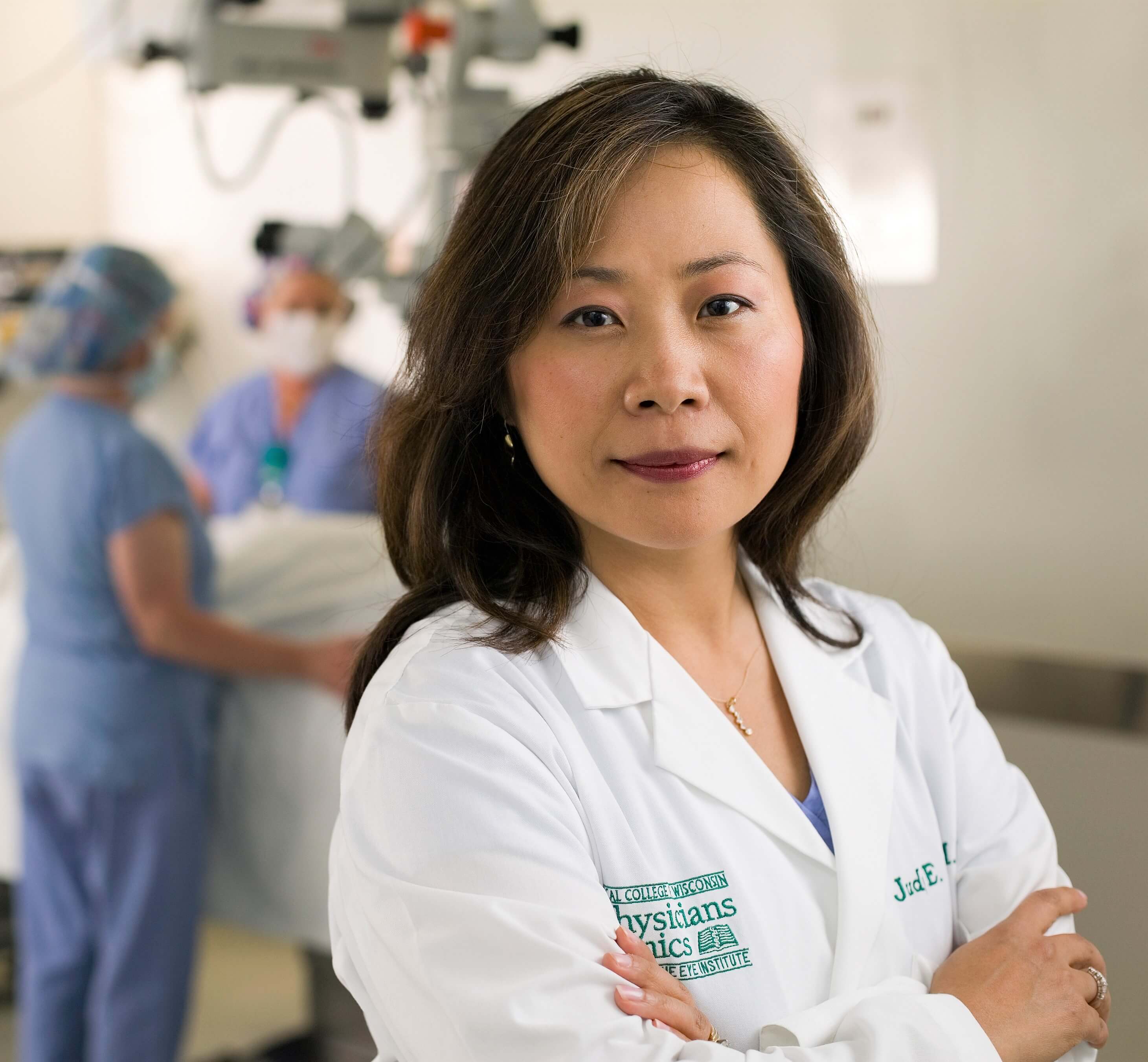
Which traits of your character have brought you to where you are?
Creativity and curiosity have been strong traits in me since I was a child. As I got older, I found the importance of spirituality and developed a strong desire to help others, reduce suffering, and improve our current state of being. While I was born in South Korea, my family lived in Japan briefly and then immigrated to the United States when I was 11 years old, not speaking a word of English. My parents always told me and my siblings that their inheritance to us are education and faith. Perhaps because I have lived in the East as well as the West, I tend to have a global view and a desire to bridge the two cultures. I am curious about people, love to learn about others and their experiences, and have an open mind, wanting to understand rather than to judge.
When I was younger, I wanted to be a teacher and then a scientist – to pursue intellectual endeavors and find answers that I may be able to impart to others to improve their lives. I must admit, there was also a brief moment when I entertained the thought of becoming a nun – and I’m not even a Catholic! While assisting in research as a college student at the University of Chicago, Lawrence Berkeley Laboratory, and National Institutes of Health (NIH), as a medical student at Johns Hopkins University School of Medicine, and as a Howard-Hughes Research Scholar at NIH, I thrived on scientific inquiry and exploring the unknown. It has been this quest for knowledge that demanded creative methods to find answers and to translate scientific findings from the bench to the bedside to improve people’s lives. While working alongside many students, post-docs, and mentors in the laboratories as a college student, I realized that a career in medicine possessed even greater options. All the qualities that I found to be meaningful – especially relieving suffering – are required in this profession on an immediate and daily basis. Therefore, I became a medical doctor to provide compassionate care. Furthermore, working in academic medicine has allowed me to combine patient care, teaching, researching, and serving – all the things that fulfil me.
I believe being a physician is not a job, but a calling. Though becoming a physician is a long and rough road, and being a physician requires much personal sacrifice, I feel so fortunate to have found a calling that excites me and makes me want to get up each day. I am also humbled each day by my patients and research subjects who open up their lives to me, entrust their sight to me, and allow me to be a part of their life’s journey.
What inspired you to choose ophthalmology?
I fell into ophthalmology by chance. When I returned from researching at the NIH between second and third year of medical school, l took ophthalmology elective as an “easy” rotation to ease into clinical training. However, when I realized the importance of sight in people’s lives, the delicate nature of ophthalmic surgery, and the intricacies of the ocular tissues and their function, I changed my goal from becoming an immunologist to an ophthalmologist.
Of all the senses we possess, I believe sight is the most important. It overwhelmingly contributes to our sense of reality and perspective, which in turn makes up who we are, how we think, and how we interact with the world around us. Furthermore, through our eyes, we can tell what is going on inside our body… How cool is that?
And how did you come to choose your subspecialty?
During my residency at Bascom Palmer Eye Institute, I fell in love with retina. Even to this day, I find it to be so beautiful and complex, something I want to know more about. However, I initially hesitated from pursuing retina as a subspecialty, as it is known for its rigor and the reality of an unpredictable lifestyle. I did not think it would be ideal for a married female ophthalmologist with a toddler, possibly because there were very few female vitreoretinal surgeons at the time – and even fewer who were married with children. However, I was fortunate to have learned from many giants of retina, such as Don Gass, who was not only considered the father of medical retina, but also the one who staffed my first scleral buckling procedure! While doing research with Harry Flynn, a superb retina specialist with a family who loved to mentor, and Stephen Pflugfelder, a cornea specialist who gave me confidence in my surgical skills, I chose to pursue retina. I have never looked back!
What has kept you fascinated with the retina field?
The field of retina has kept me fulfilled, entertained, excited, curious, and challenged – and it has propelled me forward right from the beginning of my ophthalmic career. Retina had the greatest promise for innovation, both surgically and medically. Over the years, the advances made in retina, such as pharmacologic treatments, ophthalmic imaging, surgical instruments, and gene therapy, among others, have confirmed that my initial impressions were correct. I also love being in the operating room. Due to the complexity of the surgeries, we often have to go into the battlefield with a clear battle plan in our heads, sometimes with two or three alternative plans, and even have to think quickly and improvise as the battle takes unexpected turns. While those who like routine procedures may be stressed under these situations, I find these moments to be thrilling, and they allow me to be creative. But, thankfully, these “thrills” are not common. The biggest thrill I get, even to this day, is seeing a closed macular hole or attached retina post-operatively, or a swollen retina return to normal anatomy after intravitreal injections. The most significant source of satisfaction is hearing my patients tell me how much the restoration of sight has meant to them and their families. Satisfaction also comes from clinical trials and research that I have helped lead, which has resulted in life-altering treatments around the world. Educating the next generation of physicians, seeing my students flourish in their chosen field, being able to serve my community and organizations with my skills – all of these things keep me fascinated with my chosen field. Perhaps others have observed my love and passion for the field and gave me the honor to serve on various leadership roles, such as the American Academy of Ophthalmology Board of Trustee, executive committees of American Society of Retina Specialists, Macula Society, Women in Retina, National Eye Health Education Program, NAEVR/AEVR, and DRCRnet, among others. Service to these organizations are yet another way to make a difference in my field and to pay forward for the next generation.

What impact has the COVID-19 pandemic had on your life?
The pandemic has given me a chance to reflect, renew, and refocus. And that’s been a huge change, as my head is usually like New York’s Times Square ticker tape: constantly running! It gave me permission to stop and come up for breath, above a life drowning in “busyness.” For some uncanny reason, I have always been acutely aware of our limited time on this earth. All of us are born with a time limit. Even if we live to be 80 years old, that’s only 4,160 weeks! This realization of brevity of time has driven me to accomplish as much as possible and take on more than I should at times. The pandemic period of reflection has helped me to refocus my priorities. And it will help me to put large rocks into my life’s bucket rather than filling it with small pebbles or even grains of sand.
I have a Happiness Equation: Happiness = (Reality - Expectations) x Gratitude. During the pandemic, I have exercised the act of Gratitude much more than before – being thankful for my family, friends, colleagues, health, another sunrise, rose bushes in my garden, among other things – while decreasing Expectations – learning to accept the uncertainty, letting go, going with the flow. I have been trying to elevate the state of Reality – seemingly bleak, terrible, and depressing not only from the pandemic with so many lives lost and sickened but also from social, economic, and health inequities and political unrest around the world – with love, kindness, and compassion for others and myself. After all, living is about relationships. The pandemic has reaffirmed my desire to be His instrument to improve people’s lives to the best of my abilities until my expiration date.


